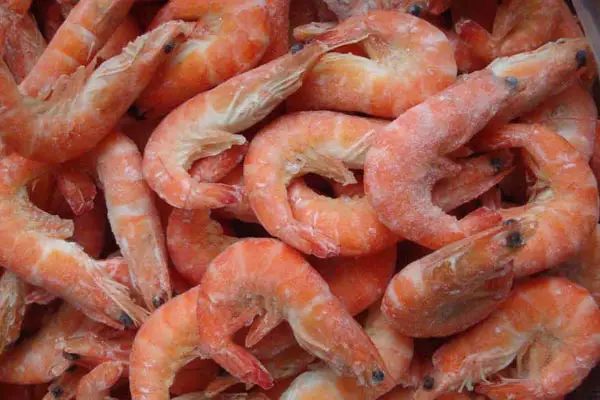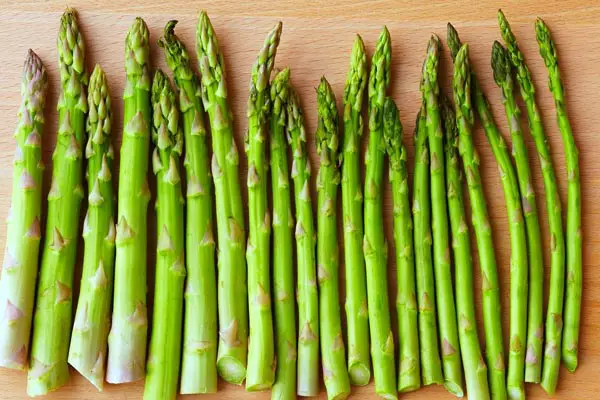A Guide to Feeding Your Dog Shrimp: The Good, the Bad, and the Who Knew?
Too often, dog owners are conditioned to know what their precious pooches cannot eat rather than what they can.
Sure, dog food offers the appropriate amount of nutrition and vitamins to ensure a canine’s diet is sound, but the processed bits are far from natural, posing the question of whether the dog is meeting its adequate needs at all.
In an attempt to embrace a more natural way of life for their dogs, owners opt for a raw diet consisting of lean poultry and beef, but rarely consider fish and seafood as an option.
Maybe people do not understand the need for seafood in a dog’s diet or maybe they deem it not safe at all.
Essentially, what’s good for the goose is good for the gander and if seafood is an excellent source of protein and nutrients for humans, it is for a dog, too.
One of the greatest sources of protein and other vitamins for people is shrimp, so why not canines, too?
First Things First, Can Dogs Eat Shrimp and Is It Safe?
If you are someone who panics at the words, “My dog accidentally ate shrimp,” relax and realize that dogs can, in fact, eat shrimp but with strict guidelines to ensure the overall safety of the pooch.
The next time you are cooking up seafood alfredo pasta, set some shrimp aside for your dog before the rest gets coated in cheese. Aside from protein, the seafood contains an excellent source of selenium, something essential in promoting a healthy metabolism.
Selenium contains antioxidant properties, as reported by WebMD. Antioxidants protect cells in the body from damage, including cancer and arthritis, a common condition seen in large dog breeds.
So, the next time you call animal poison control or run into your local vet in a panic declaring that your dog ate cooked shrimp, rest assured in knowing that your pooch got a tasty treat rather than something that could leave you with a hefty vet bill.
Can Shrimp Be Bad for Dogs and Why?
Oscar Wilde once said, “Everything in moderation, including moderation.” Despite most dogs being able to consume some shrimp from time to time, it is essential to understand that feeding them to your dog daily is not the greatest idea.
Additionally, your digestive tract may have adjusted to your favorite shrimp sushi, but your dog probably will never become tolerant to raw shrimp, thus emphasizing the importance of cooking it before feeding it to your pet.
Like people, no two dogs are alike and must be treated as such. Your rottweiler may respond to two or three cooked shrimp positively, but your smaller chihuahua could demonstrate digestive issues when given the shellfish.
Introduce your dogs to the food in small doses and watch for any negative side effects before making it a common treat.
Conclusively, shrimp can be bad for dogs as each dog can respond to it differently. Though a natural food in it of itself, your dog has never eaten it and its system may reject it entirely.
Raw shrimp contains harmful bacteria–more specifically, four types found in over sixty percent of those tested, as reported by Woman’s Day. The bacteria is also fortified with antibiotics.
Food that contains bacteria and antibiotics is dangerous as the bacteria eventually becomes immune to treatment, meaning that the body builds up antibiotic-resistant pathogens.
So, if you ever want your dog to respond to antibiotics prescribed by the vet positively, understand the risks of raw shrimp in general.
Are Dogs Allergic to Shrimp?
Like people, dogs can be allergic to certain foods, but recognizing the difference between a food sensitivity and allergy is important.
As reported by Jean Hofve, DVM, “Food intolerances and allergies in dogs tend to manifest in two primary ways: skin disease and gastrointestinal disease.”
Basically, dogs demonstrate food intolerance through their gastrointestinal tract and contract conditions such as constipation, colitis, inflammatory bowel disease, and diarrhea and reflect allergies through skin ailments, including rashes.
So, the next time you tell your vet, “My dog ate shrimp and has diarrhea,” prepare to be schooled in allergies versus intolerance.
Other Shrimp Dangers: Can Dogs Eat Shrimp Shells?
In addition to controlling the portions of shrimp you give your pooch, you must understand the manner to prepare the shrimp as well.
People often view dogs are garbage disposals capable of eating what people will not, including shrimp shells, but the shells are a choking hazard for dogs.
Can Dogs Eat Shrimp Tails?
Like the shells, shrimp tails are both a choking hazard and can cause obstructions in your dog’s body where the canine’s intestines become blocked and inflamed, a condition that requires life-saving surgery.
This is especially true for small breeds whose intestines account for seven percent of their body weight as opposed to the three percent in large breeds, according to PetMD.
My Dog Ate Two Shrimp Tails; Now What?
While the size of your dog must be considered in such a circumstance, it is still necessary to keep a watchful eye on them for a few hours and even into the next day.
For a large breed, two shrimp tails may not do much and after about ten hours without issue, it is safe to deem them clear from harm. A small breed may be affected by this consumption and taking them to the vet for x-rays is a safe bet.
Preparing Shrimp for Dogs the Best and Easiest Ways
After you peel and devein the shrimp (check out this video on the easiest way to do so), it is time to cook it thoroughly.
Most people enjoy fried seafood, but they limit their knowledge of not overdoing it to only themselves. Fried food is delicious and a piece here and there will not cause any harm to your dog, but only serving them fried or shrimp sauteed in butter will result in weight gain and health issues as a result.
Can Dogs Eat Boiled Shrimp?
The best way to prepare shrimp for your dog is to steam or boil it. While certain foods tend to lose up to seventy percent of nutrients when boiled, others allow said nutrients to be more readily available for consumption, like shrimp. Of course, boiling foods is simple and fast and requires only a pot, water, and the food.
Overall, Is Shrimp Good for Dogs?
The health benefits of shrimp are rich and undeniable. Aside from containing high amounts of selenium, protein, and antioxidants, shrimps are low in calories. In fact, one medium-sized shrimp contains only seven calories, so feeding them to your dog can be a guilt-free activity.
Shrimp is rich in vitamin B12, which keeps the body’s nervous system healthy and promotes the production of wholesome red blood cells.
Vitamin B12 aids in preventing a certain type of anemia (megaloblastic) that makes living creatures tired and weak, which is something to consider for individuals with elderly pups.
Fruitful in phosphorous as well, this fare offers an array of other benefits for your dog, including the promotion of healthy digestion and the elimination of toxins from the body, prevents arthritis and general body weakness, elevates brain function, improves the body’s metabolism, and wards off the deterioration of cells.
Why Should Dogs Eat Shrimp?
In addition to containing vital vitamins and nutrients, shrimp is a low-calorie treat that actually satisfies hunger for a fair amount of time.
Dogs will eat until they get sick and overfeeding is a common issue for pet owners. This often circulates dogs eating food high in grains rather than hunger-sustaining protein.
Protein satisfies hunger longer, meaning that your dog just might stop begging for table scraps after you offer him or her a few cooked shrimp. Also, Michele Borboa, MS, reports, “And protein plays a role in your body’s metabolism because it maintains and builds muscle, which uses more calories and helps burn fat.”
The healthy fat found in shrimp promotes brain function, which is great for those hoping to train a pet and have it retain those commands.
The improvement of cognitive abilities will not only result in a more active pet but will reduce the chance of serious ailments in the future, including blindness and seizures.
Are There Any Good Alternatives to Shrimp?
If you are still not convinced that shrimp is for your pooch, it is safe to say you are already researching alternatives that offer the same benefits.
Now that you know which vitamins and nutrients to seek for your pet, deciding on shrimp alternatives is a fairly easy feat and includes fare such as:
Lobster
People usually like feeding their dogs what they eat–within reason, of course. Lobster is loaded with the same nutrients as shrimp, including phosphorous, selenium, and vitamin B12.
Additionally, though, the pricey favorite is high in omega-3 fatty acids, components that lower triglycerides, curb joint pains, promote brain function that can help your pet focus better, and elevates positive moods.
Chicken
An obvious choice to give your dog is chicken as it is lean and high in protein, but it is essential to consider how calorie-unfriendly chicken can get. Prepare this meat as you would shrimp, boiled or steamed.
Your dog will reap the benefits of high concentrations of antioxidants, which will prevent free radicals from entering the body and boost your pet’s immune system.
Additionally, pets with an intolerance to shrimp probably have one to other shellfish, too, so chicken is undoubtedly a great choice to avoid gastrointestinal issues.
Tuna and Salmon
Adding a can of fish to your dog’s regular food is a great way to give them an extra source of protein and deliciousness; just make sure that you opt for a can without any additional salt.
Tuna is heart-healthy in the sense that it works to keep arteries from clogging with the aid of its omega-3 fatty acids and it lowers blood pressure.
The fish strengthens bones because of the high concentrations of vitamin B found in it and promotes skin health, an essential attribute because dogs are susceptible to skin irritations and conditions. Tuna delivers a healthy boost of energy as well.
Lean Beef
Perhaps the most common component companies incorporate into dog food is lean beef. Lean ground beef is rich in essential amino acids, which prevent inflammation thus abating arthritis, prevent muscle damage and loss, combat against fatigue, speed up the healing process, and improve muscle growth.
As always, cooking the meat before giving it to your pooch will prevent the consumption of bacteria.
Feeding your dog cooked ground beef on occasion will ensure its ability to run and play with you for a long time to come.
Vegetarian Alternatives: Are There Any?
As mentioned prior, people appreciate when their dogs eat the same things that they do, but there are limits to this goal. Despite most dog foods being fortified with vegetables, including sweet potatoes, green beans, and corn, a serious protein base is always incorporated in there as well.
While some feel that tofu is okay to feed to dogs in moderation, experts would not recommend soy as being apart of a dog’s diet as one of the most common food sensitivities dogs have is to soy.
To serve alongside a meat-based protein, apples, carrots, and eggs are acceptable vegetarian alternatives to shrimp.
Is Shrimp the Answer?
Conclusively, “My dog ate cooked shrimp,” are words to be celebrated rather than feared. An understanding that shrimp cannot be the main component in a dog’s diet is crucial, but the realization that the shellfish can be used to replace more processed dog treats is a celebratory reality.
If shrimp is regularly on your menu, rest easy in knowing that deveined shrimp without any tails or shell will not hurt your pooch.
Consulting with your veterinarian, though, is an important task to ensure that your dog will reap the benefits of shrimp rather than suffer through any intolerance just because of the taste.






